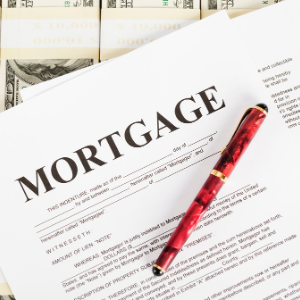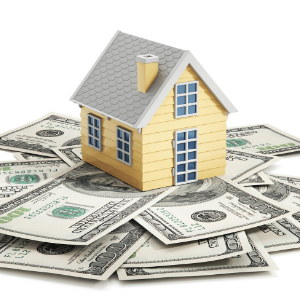
Understanding Mortgage Regulations for Selling a House in North Carolina
Knowing the rules is essential when selling a home in North Carolina with a mortgage. Before listing the house, read your loan paperwork to find any early-payoff fees or terms that might slow the sale.

State law requires the mortgage to be paid in full at closing, so you will need a payoff statement from the lender showing what you owe and any extra charges. Ask for this document before closing to keep the deal on schedule and avoid last-minute surprises.
You also must follow North Carolina’s disclosure law, which tells you to share all essential facts about the property that could change how much buyers want to pay. Being open about repairs, past flooding, or title issues helps you meet the law and gives buyers the confidence they need for a smooth, successful sale.
Legal Considerations When Selling Mortgaged Property in North Carolina
Selling a house in North Carolina when you still owe money on the mortgage can be tricky, so you need to know the legal details before you start. First, read your loan papers to find out if there are any prepayment fees or other rules that could slow down the sale.
Next, ask your lender for a payoff quote. That document tells you the amount still owed and lists any extra costs you must pay at closing. Also, check for liens, because those debts must be cleared before you can hand over the title.
Working with a North Carolina real estate attorney makes meeting the state’s disclosure rules easier and keeps everyone on track with the contract. You should also learn about federal regulations like RESPA, which guide closing costs and escrow, to negotiate without surprises.
When sellers grasp these legal points, they reduce the risk of last-minute problems, raise their chances of a smooth closing, and fully comply with North Carolina law.
How to Estimate What Your Mortgaged Home Is Worth in North Carolina
Figuring out what a mortgaged house in North Carolina is worth takes a few steps. Start with a Comparative Market Analysis, or CMA, where you look at recent sales of similar homes near you and compare key details like square footage, neighborhood, age, and extra features.
Next, hire a licensed appraiser who will walk through your property, review today’s market, and give you an independent opinion on its condition and trends. It’s also smart to pay attention to how fast houses are selling in your corner of North Carolina, since local job growth, school ratings, and interest rates can push values up or down.
Websites like Zillow or Realtor.com show trends and price fluctuations, letting you spot neighborhood highs and lows at a glance. Still, chatting with a local real estate professional who knows the area inside and out and has full MLS access can give you the final, custom snapshot you need.
Adding all these pieces together can help you set a reasonable asking price and clear your mortgage when the sale closes.
Steps to Prepare Your North Carolina Home for Sale with an Existing Mortgage
Selling a house while money is still owed on the mortgage takes a little extra planning, but it can be done without much stress. If you need to sell a house with a lien, start by calling your bank for the current payoff amount and asking if early-payoff fees apply; this number helps you set a fair asking price.
Before you show your house to anyone, gather all the paperwork related to your mortgage and any previous loan modifications. Having this stack ready helps you answer buyers’ questions quickly and calmly. By getting the house spotless, understanding the ins and outs of selling with a mortgage, and staying organized, you give yourself the best shot at a smooth sale in North Carolina’s fast-moving market.
Financial Aspects of Selling a Mortgaged House in Today’s Market
Selling a house in North Carolina while still carrying a mortgage means you must be crystal clear about the money at stake. Start by checking how much you still owe on the loan, then guess what buyers might pay.

In most cases, the cash from the sale has to clear the loan balance and any early-payoff fees you agreed to when the deal started. Knowing the amount of equity you own or don’t own shapes every budget plan you write.
If the neighborhood has appreciated since you moved in, you probably have enough equity to wipe out the mortgage and pocket some cash. But moving forward can get tricky if prices have slid backward or you are still paying off more than the house’s current value, a situation called being underwater.
Sellers in North Carolina need to count closing costs and real estate expert fees, because these charges eat into the cash they walk away with at the closing table. By tracking these expenses up front, homeowners can set a smart sale price and negotiate better, helping them come out where they want when they sell a house still tied to a mortgage.
Ways to Clear Your Mortgage While Selling the Home
When you sell a house in North Carolina that still has a mortgage, knowing how to chip away at that debt during the sale is key. One solid move is to team up with a savvy real estate professional who will run a local market analysis so you can set an asking price that covers what you still owe.
You can negotiate with buyers to pay part of the closing costs; the extra cash can go straight to the lender. Finally, call your bank early to find out if there are any prepayment penalties or special steps you need to follow when the sale closes.
When offers flood in, give top priority to buyers who are already pre-approved and promise a quick close. The sooner the deal is done, the faster cash lands in your account and wipes out your mortgage. You also need to grasp how escrow works: at closing, the escrow company uses sale proceeds to pay off your old loan immediately.
That smooth, automatic payment clears every lien on your home before title changes hands, so you step into your next chapter free of unpaid mortgage bills.
If you’re hoping to skip the stress of paperwork and payoffs, Zack Buys Houses buys homes as-is for cash in Charlotte, including Charlotte and Greensboro, helping homeowners move forward without the hassle of selling a house with a mortgage.
Tips for Marketing Your North Carolina Home with an Outstanding Mortgage Balance
Strong marketing can draw buyers even when a North Carolina house still carries mortgage debt. Start by writing catchy ads and online posts highlighting the features that make your home unique in a crowded market.
Team up with a local real estate professional who knows how to sell a North Carolina home with a mortgage; their experience will help you price the house so the mortgage gets paid and buyers still feel like they’re getting a deal. Then, spread the word on social media with clear, eye-catching posts that showcase your neighborhood’s parks, schools, and hidden gems so that people scroll, share, and fall in love before they even step inside.
When you explain the mortgage balance upfront and market the home well, you smooth out the closing process and attract serious buyers who see every number before making an offer.
Navigating Real Estate Contracts When Selling a House With a Mortgage
Selling a house with a mortgage in North Carolina means working through contracts with legal and financial weight, so you need to read every line and ask questions. Start by checking your loan statements, calling your lender to learn about any prepay fees and exact payoff figures, and writing those costs into your pricing plan so surprises don’t stall a good offer.
Being open about any mortgage still on the house during contract negotiations strengthens trust with would-be buyers. Sellers should team up with a real estate professional who knows North Carolina’s laws and let that pro draft a purchase contract that spells out the unpaid loan and explains how it will be settled at closing.
The paperwork should also say how much of the sale money goes to the lender, so no one is blindsided at the settlement table. Sellers must watch for any financing contingencies buyers add, because those clauses can change deadlines and duties laid out in the deal.
Taking care of these details helps avoid legal snarls and gives everyone a smoother closing when the house is sold.
Leveraging Real Estate Professionals to Sell Mortgaged Properties Efficiently
When a mortgage is still in place, the best way to sell a home in North Carolina is to lean on experienced real estate professionals. They know the local market inside and out, so they can set a price that draws buyers and still covers what you owe the bank.
Real estate professionals tap into huge networks and money-saving marketing tools that put your house in front of more buyers and speed up the sale. They negotiate every bid and counter-bid, so you walk away with enough cash to wipe out your mortgage and pocket extra profit.
Experts also know how to handle the paperwork involved in a mortgage sale, from talking to lenders to filing those tricky forms. By teaming up with one of them, you can smooth out the entire process and reduce the stress of selling in North Carolina’s fast-moving market.
Common Mistakes to Avoid When Listing a Mortgaged Property for Sale
When North Carolinians list a house with an active loan, they often stumble over simple rules that make closing harder. One pitfall is guessing the payoff figure instead of checking with the bank; interest and fees can push that number higher than the monthly statement.
Grab a payoff letter before you list, so there are no last-minute surprises at the closing table. And remember, clean staging and fresh marketing still matter; buyers move on quickly if a home looks neglected or isn’t shared online in the best light.
In today’s crowded real estate scene, grabbing buyers’ attention starts with clear, professional photos and tidy listings up front, especially on homes still carrying big loans. Another blocker is overpricing; sellers think they must recoup every dollar the bank owes, yet ignore what similar houses are fetching. The result is prolonged exposure, dwindling interest, and, too often, price cuts that chip away at the perceived value.
Bring in a local North Carolina real-estate pro who knows current trends and the rules around selling mortgaged homes. They can set a fair asking price and guide you through the paperwork, including any required payoffs, releases, and title searches. Besides, hiding facts about repairs, liens, or unpaid dues almost guarantees last-minute drama or a messy lawsuit. Honest, open communication from day one helps build trust and keep the deal moving.
The Role of Escrow Accounts When Selling Homes with Mortgages
When you sell a house in North Carolina that still has a mortgage, understanding escrow accounts matters more than many people think. An escrow account collects money each month so property taxes and homeowners’ insurance are paid on time, meeting the terms of your loan and protecting the collateral for both you and the lender.
If these bills fall behind, not only could the sale stall, but you may also face late fees or costly gaps in coverage. Keeping that account current, or arranging for the new buyer to take it over smoothly, is a small step that saves massive headaches later.
When you put your house on the market, both sides check the escrow account to ensure every promise is met before you sign the final papers. Once those items are ticked off, any leftover cash in the escrow pot is usually returned to you.
While the sale is progressing, your lender calculates your mortgage debt and adds money from the escrow if necessary. This step ensures that all property taxes and insurance bills are counted so the closing statement lines up correctly.
Keeping the escrow account in good order can spare you and your buyer from delays or surprises by ensuring that all money tasks tied to the mortgage are done on time and correctly.
How to Negotiate Offers as a Seller with an Outstanding Mortgage Obligation
When you sell a home in North Carolina and still owe money on the loan, smart negotiation is key to a deal that works for everyone. Before you talk numbers, know precisely how much your lender needs to clear the mortgage and whether paying it off early will cost you extra.
When bids roll in, don’t just stare at the headline price. Check the fine print- terms like the down payment size and closing date- because they drive how much cash lands in your pocket and how quickly you can clear the mortgage. A significant deposit or speedy closing eats up fewer holding costs and eases the weight of monthly payments, so chase offers that tick those boxes.
Be ready to haggle over inspection clauses and repair lists; loose wording can delay the deal or chip away at the final number. A sharp North Carolina real estate expert sees through buyer motives, helping you play stronger bids against each other while still covering your loan needs.
Match your negotiating style to today’s market- hot, cool, or somewhere in between- to hold on to key deal features and push for terms that keep the mortgage in check.
Tax Considerations and Implications of Selling a Mortgaged Property

If you’re parting with a North Carolina house that still carries a loan, it’s a good idea to look at the tax picture before signing anything. Should you walk away from closing with more than you paid, or more than you poured into big upgrades, the IRS could claim a slice through capital-gains tax on the profit.
Homeowners can usually lean on the IRS exclusion for their main home. Single taxpayers can write off up to $250,000 in profit, while married couples filing together get $500,000, provided they meet the ownership and residency rules. So, when you run the numbers, always check how much is left on the mortgage.
You also need to know the local property tax rate and how the prorated amount will show up at the closing table. A North Carolina tax pro who knows about real estate deals can steer you through the paperwork, keep you within state and federal rules, and help you pocket more cash.
Understanding Closing Costs and Payouts Involved in Selling with a Mortgage
If you sell a house in North Carolina and still owe money on the loan, you must understand the closing costs and payouts. Closing costs cover the final bills for the sale, including attorney fees, title insurance, recording fees, and sometimes transfer taxes.
Those charges are removed from your sale proceeds before you get a check. In addition, the balance of your mortgage has to be cleared using the same money.
If your mortgage has a prepayment penalty, paying the loan off early could cost you extra fees. Knowing this beforehand lets you figure out exactly how much money you’ll earn after the sale.
Clued in on these details helps sellers meet their money commitments and move through the sale smoothly.
Managing Credit Scores and Financial Health During the Home-selling Process
When you sell a house in North Carolina and still carry a mortgage, keeping your credit score strong matters. That means making every mortgage payment on time until the deal closes; a late payment can quickly drag your score down.
Buyers and lenders will look at your financial record, so a healthy credit score gives you more negotiating power. Likewise, steering clear of new credit cards, big purchases, or other debt during the sale helps shield your overall finances.
Checking your credit report regularly lets you spot strange entries early, so you can fix them and keep your score on track. By following these tips, you make every sale or lease in North Carolina easier and guard your money for the next step.
How Refinancing Options Impact the Sale of Your Mortgaged Home
Exploring refinance choices can significantly affect selling a house while still carrying a mortgage. Paying off your old loan with a new one before you list the property might drop the interest rate, shrink monthly payments, and make your home look cheaper to potential buyers.
The move could also free up equity that you use to cover closing costs or fund minor repairs and upgrades buyers love. Still, you must weigh the expense of new-closing fees, title insurance, and any penalty for paying off the first loan early.
Timing counts; if you plan to sell soon after refinancing, the savings may never outweigh those upfront costs. Talking with a Financial Advisor or an expert familiar with the North Carolina market will clarify whether the strategy aligns with your sales plans and budget.
Pros and Cons of Short Sales for Homes Underwater on Their Mortgage
f your North Carolina home is underwater, weighing the pros and cons of a short sale is crucial. A short sale lets you sell the house for less than what you owe and, in many cases, dodge foreclosure.
This option can free you from a crushing monthly payment while leaving a smaller mark on your credit report than a foreclosure. Conversely, the process is often slow and tricky because the lender needs to be green-lighted to accept that lower price.
Sellers must also watch out for tax bills since the IRS might count any forgiven loan balance as income. Plus, some banks reserve the right to chase you for any remaining debt after closing; others simply refuse to approve the deal.
Because of these pitfalls, you must team up with a North Carolina real estate professional who knows the short-sale ropes and can guide you every step.
Utilizing Online Platforms to Increase Visibility When Selling a Mortgaged House
When you sell a North Carolina house that still has a mortgage, online tools are key to getting more eyes on the listing and pulling in buyers. Websites, social networks, and 360-degree walk-throughs each play a part in spreading your home’s news far beyond a simple yard sign.
Big real estate portals like Zillow, Realtor.com, and Redfin let you post sharp photos and precise details where millions of shoppers already search. Shifting attention to Facebook Marketplace or Instagram Stories also helps page visitors hunting for houses in familiar neighborhoods.
Add a virtual tour, and buyers can stroll from room to room without leaving their couch, making distance less complicated. Toss in smart keywords such as North Carolina home for sale or house with existing mortgage, and your listing moves higher in search results.
Use these platforms well, and you will place your mortgaged property squarely in front of fitting buyers, leading to a quicker sale at a better price.
Deciphering Buyer’s Offers: What Sellers Need to Know About Financing Conditions
Knowing how buyers plan to pay is crucial when you sell a house in North Carolina and still have a mortgage. Check whether they use a conventional, FHA, or VA loan because each option has rules that speed up or slow down the sale.
Before accepting an offer, ask for proof of pre-approval to ensure the buyers have the money to follow through. You can also double-check the strength of the offer by reading any mortgage-approval contingencies it includes.
Remember, financing clauses can delay closing if lenders ask for extra paperwork or the appraisal is lower than expected. Also, rising interest rates or a shaky market may suddenly change what buyers can afford or how quickly funds appear.
By reading these financing signals, you can tweak your counter-offer, demand stronger terms, and lower the odds that a bank problem sinks the deal.
Post-sale Steps: Settling Remaining Debts After Closing on a Mortgaged Property
Once you sell your North Carolina home that still has a mortgage, a few quick steps will wipe the slate clean and settle any leftover bills. After the closing meeting and while the sale check is cut, you must ensure your mortgage balance gets paid off before anything else.
Usually, the closing attorney immediately cuts a check to your lender, and the money gets routed to the right place without delay. Grab a payoff statement from your bank before the sale to avoid any last-minute headaches, so you know the exact dollar amount needed to clear the loan.
If the number you expect and the number your lender receives dont match, raise the issue immediately so it doesn’t become a bigger financial mess. And remember, any other liens, second mortgages, or homeowners association debts must also be paid from the sale proceeds, or the deal could stall.
While all this gets sorted, save copies of emails, wire receipts, and phone notes. Crossing these financial t’s clears your records and lets the new owner step into a hassle-free title.
Can I Sell My House Even If I Have a Mortgage?
Yes, you can sell your North Carolina house even if a mortgage is still on it. Selling a property with a loan still in place is common, and when handled correctly, the process is quick and straightforward.
When you sell a house that still has a mortgage, most of the sale money goes straight to the bank that lent you the cash. That means you and your lender must agree on the exact payoff figure- the amount still owed when the deal officially closes.
Because the loan is still active, the whole process demands solid planning and fine teamwork to pay every bill. In North Carolina, many attorneys guide the closing, making sure every step meets state rules and protecting your interests.
You also need to set a fair price and count on costs like professional commissions and closing fees, so the dollars left after the mortgage feel like profit. Knowing these steps can speed up the sale and keep your loan under proper control.
What Happens When You Sell a House Without Paying Off the Mortgage?
If you sell a North Carolina home with a mortgage, you might wonder what happens if the loan is not paid in full at closing. In most cases, the cash from your buyer goes straight into your lender’s hands to wipe out the remaining balance.
During closing, the escrow office or lawyer in charge sends your lenders the final mortgage payment out of the sales proceeds. Because of this quick transfer, you do not have to write a separate check to clear the loan before handing over the keys.
If your home’s sale price is lower than you still owe, you will probably have to pursue a short sale. In that case, talking with the lender early is crucial because you need their agreement to remove the lien for the smaller amount.
Selling while the mortgage is still in place relies on understanding these financial details and ensuring every party—professional, buyer, and closing expert—coordinates smoothly to finish the deal in North Carolina.
Can You Sell a House with a Lien on It in North Carolina?

Absolutely! You can sell real estate that carries a lien in North Carolina. Of course, doing so requires paying close attention to the legal and financial details tied to that existing loan or any other lien.
The standard process in NC ensures that all claims on the property- mortgage liens, tax liens, or similar obligations- are settled before money changes hands and the title transfers. A lien acts as a creditor’s hold on your asset until you clear the amount owed.
Selling a house in North Carolina with a lien starts with getting a payoff letter from the lender, which tells you the exact balance owed. Teaming up with a real estate lawyer or expert who knows NC rules can smooth out the steps.
They can bargain with the lien holder and ensure that every unpaid bill is settled at closing. Tackling these debts early helps dodge delays and hand the keys to the new owner without breaking state laws.
Does the Seller Have to Be Present at Closing in North Carolina?
A common question when unloading a home that still has a mortgage is whether the owner must sit at the closing table. The good news for busy sellers is that, under state rules, showing up in person is not mandatory.
Instead, many owners grant their expert, or another trusted person, a power of attorney and let that representative sign the papers. This option works well for sellers moving across the country or juggling other obligations.
Partnering closely with your real estate professional and your lawyer is key. Things move faster when everyone shares paperwork early and signs ahead of time. Knowing these options lets you sell your home even if a mortgage is still active. That way, the whole deal stays smooth and avoids pointless hold-ups.
If you want to sell your house in North Carolina but still have a mortgage, Zack Buys Houses can help make the process quick and straightforward. We buy homes as-is for cash in Charlotte, so you can skip the stress of listing, repairs, and drawn-out closings. Whether you’re behind on payments, facing prepayment penalties, or just want a clean break, Zack Buys Houses handles the details and helps you move forward—no agent fees, hidden costs, and no waiting. Contact us at 704-769-0141 to get your cash offer!
Helpful North Carolina Blog Articles
- Selling Your Investment Property in North Carolina
- Selling Your North Carolina Home With An Existing Mortgage
- How To Successfully Sell A House With Tenants In North Carolina
- Appraisal Repairs in NC: How They Impact Your Home Sale
- Documents Required to Sell a House in North Carolina
- Closing Costs Without a Realtor in North Carolina
- Filing A Quitclaim Deed For Real Estate In North Carolina
- Real Estate Division In North Carolina Divorce Cases
- Selling Your North Carolina Home Without A Real Estate Agent
- Who Pays the HOA Fees at Closing in North Carolina
- How to Sell a Condemned House in North Carolina
- How to Sell a House As-Is in North Carolina
- Does a Seller Pay Closing Costs in North Carolina
- Can You Sell a House That Failed Inspection in North Carolina
- Lease Options to Sell Your North Carolina Home

| HOME LOANS | HOUSING FINANCE | MORTGAGE LOAN | MORTGAGE LENDING | FORECLOSED | FORECLOSING |
| MORTGAGE FORECLOSURE | FORECLOSE | FORECLOSURE SALE | LENDING | LOAN APPLICATION | HOME OWNERSHIP |
| BORROWER | DEBTOR | REAL ESTATE BROKER | DEFAULT | COURT | ECOURTS |
| TRUSTEE | REAL PROPERTY | TRUST | DEED | DEEDS OF TRUST | DEED OF TRUST |
| CIVIL ACTION | CIVIL CASES | CIVIL LAWSUIT | LAWSUITS | CASH | STATUTORY |
| STATUTE | MONEY | HOME APPRAISAL | CONSUMER | BANKS | INTERESTS |
| UNDERWRITING | UNDERWRITERS | LOAN MODIFICATION | FSBO | FOR SALE BY OWNER | FINANCES |
| FINANCED | LEGALLY BINDING | ADVERTISERS | ICON | CONDOMINIUM | OVERSIGHT |
| RETURN ON INVESTMENT | ROI | RETURN ON INVESTMENT (ROI) | MULTIPLE LISTING SERVICE | LANDSCAPING | INVESTOR |
| HOMEOWNERS ASSOCIATION | HOA | HOME INSPECTION | EVIDENCE | BOND | THE UNITED STATES |
| UNITED STATES | REGISTER OF DEEDS | POLICY | LOSS MITIGATION | COMMUNICATION SKILLS | CAPITAL GAINS TAXES |
| TITLE SEARCH | SECONDARY MARKET | RECEIPT | RALEIGH, NC | THE NATIONAL ASSOCIATION OF REALTORS | NATIONAL ASSOCIATION OF REALTORS |
| MOBILE HOME | INVESTMENT | INVENTORY | BONA FIDE | FEEDBACK | |
| FAIR MARKET VALUE | CREDIT CARD | COMPETITION | BATHROOM | AVERAGE | |
| NORTH CAROLINA HOUSING | NORTH CAROLINA THERE ARE | IN NORTH CAROLINA CAN | SALE IN NORTH CAROLINA | IN NORTH CAROLINA THERE | IN NORTH CAROLINA IN |
| CAROLINA HOUSING FINANCE AGENCY | NORTH CAROLINA HOUSING FINANCE | THE NORTH CAROLINA HOUSING |
